A series of key health messages from your local NHS for the voluntary sector, community champions and patient representatives to share among their networks and communities.
We’re also keen to hear your ideas on how we reach more people with these important health messages. If you can help make these messages more accessible through a different format or language, please let us know and we can look at financial support to help make this happen.
Key messages
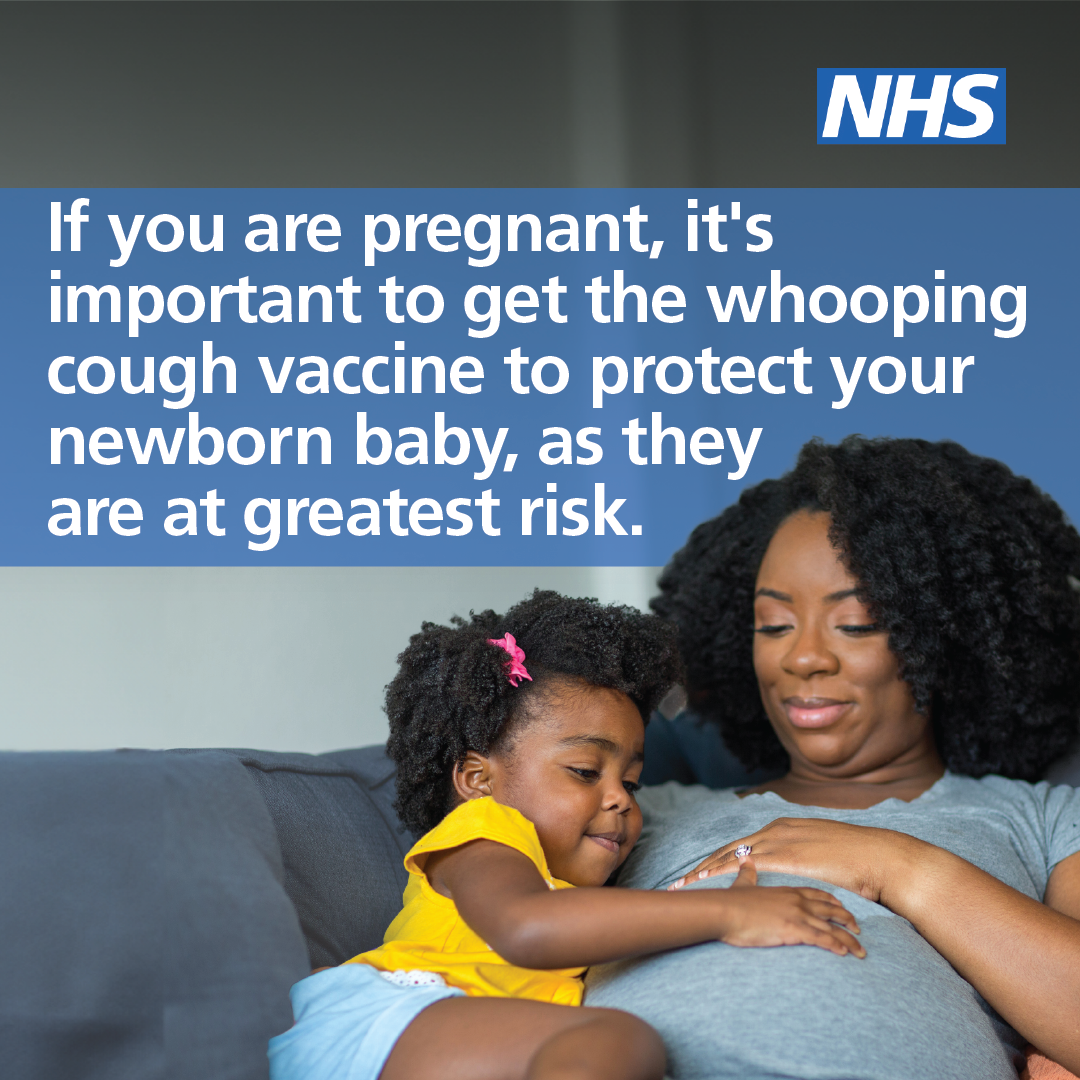
553 new cases were confirmed in England during January 2024, compared with 858 cases for the whole of 2023.
Young babies with whooping cough are often very unwell and many are likely to need hospital treatment as it can lead to pneumonia and permanent brain damage.
If you are pregnant, you can help protect your baby by getting vaccinated – ideally from 16 weeks up to 32 weeks pregnant. The immunity you get from the vaccine passes to your baby through the placenta and protects them until they are old enough to be vaccinated at 8 weeks old.
Vaccination in pregnant women is 97% effective at preventing death in young infants from whooping cough.
The whooping cough vaccine has been administered during pregnancy for over 10 years, and getting vaccinated whilst pregnant is highly effective in protecting your baby from developing whooping cough in the first few weeks of their life.
If for any reason you miss having the vaccine, you can still have it up until the end of pregnancy.
You can access a whooping cough vaccine from your GP and through some antenatal clinics. You may be offered the vaccination at a routine antenatal appointment from around 16 weeks of your pregnancy.
If you are more than 16 weeks pregnant and have not been offered the vaccine, talk to your midwife or GP and make an appointment to get vaccinated.
For further advice on getting your whooping cough vaccinations in your area, speak with your local maternity service.
You can find out more about whooping cough on the 0-18 years website.
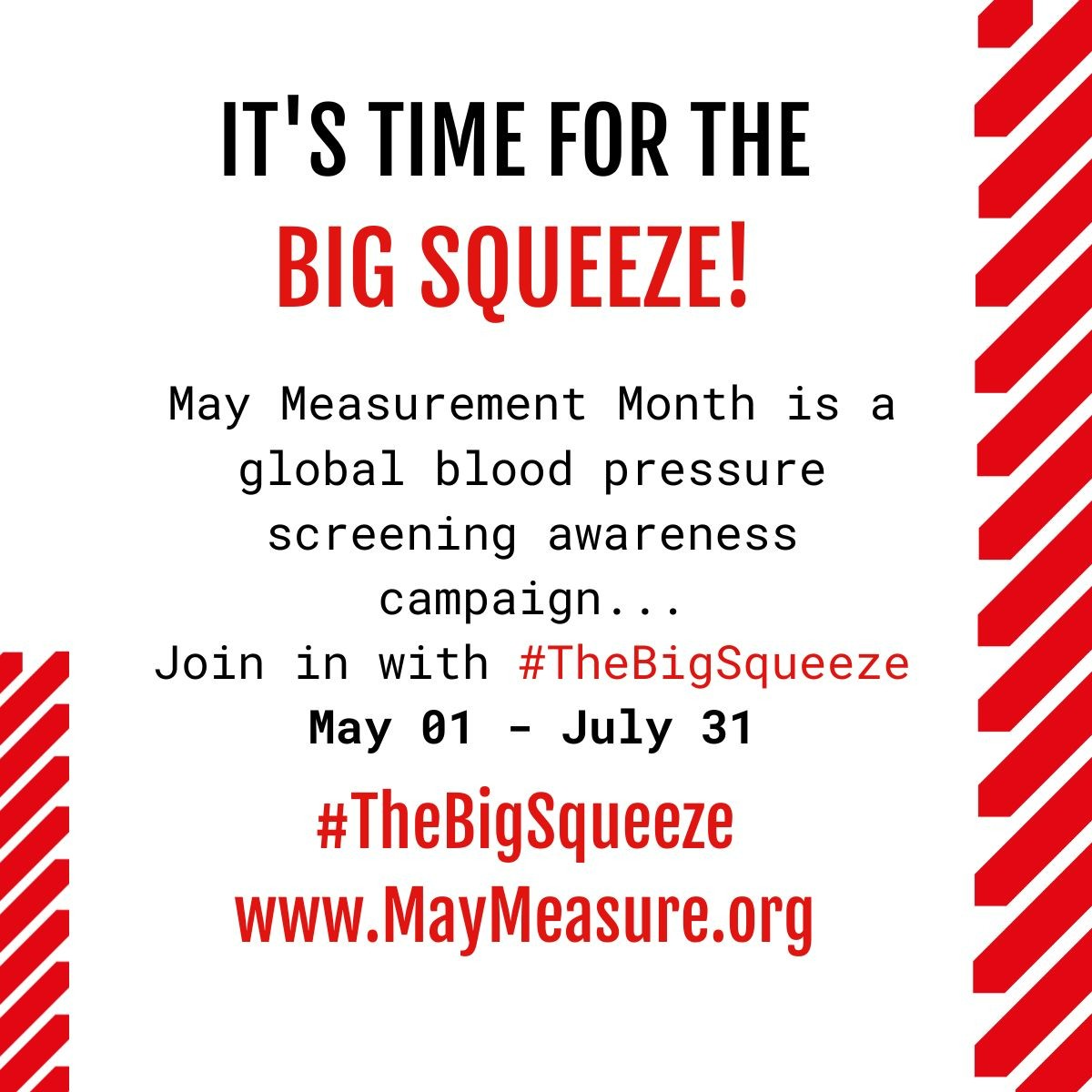
For May Measure Month, a campaign run by the British and Irish Hypertension Society (along with the International Society of Hypertension), we are asking people of the Black Country to join in with #TheBigSqueeze.
The only way to know if you have high blood pressure is to have your blood pressure checked. If you are over 40 and haven’t had your blood pressure checked in the last six months, you are eligible for a free blood pressure check at a local pharmacy. To find a local pharmacy that offers a free blood pressure check, visit Black Country Integrated Care Board’s website here.
High blood pressure can be prevented or reduced by making healthy lifestyle choices. Maintaining a healthy weight, taking regular exercise, drinking alcohol in moderation and not smoking can all help to reduce your risk. Find more information on high blood pressure and prevention advice on the NHS website.
Download a toolkit with copy, images and social messages to share about May Measurement Month.
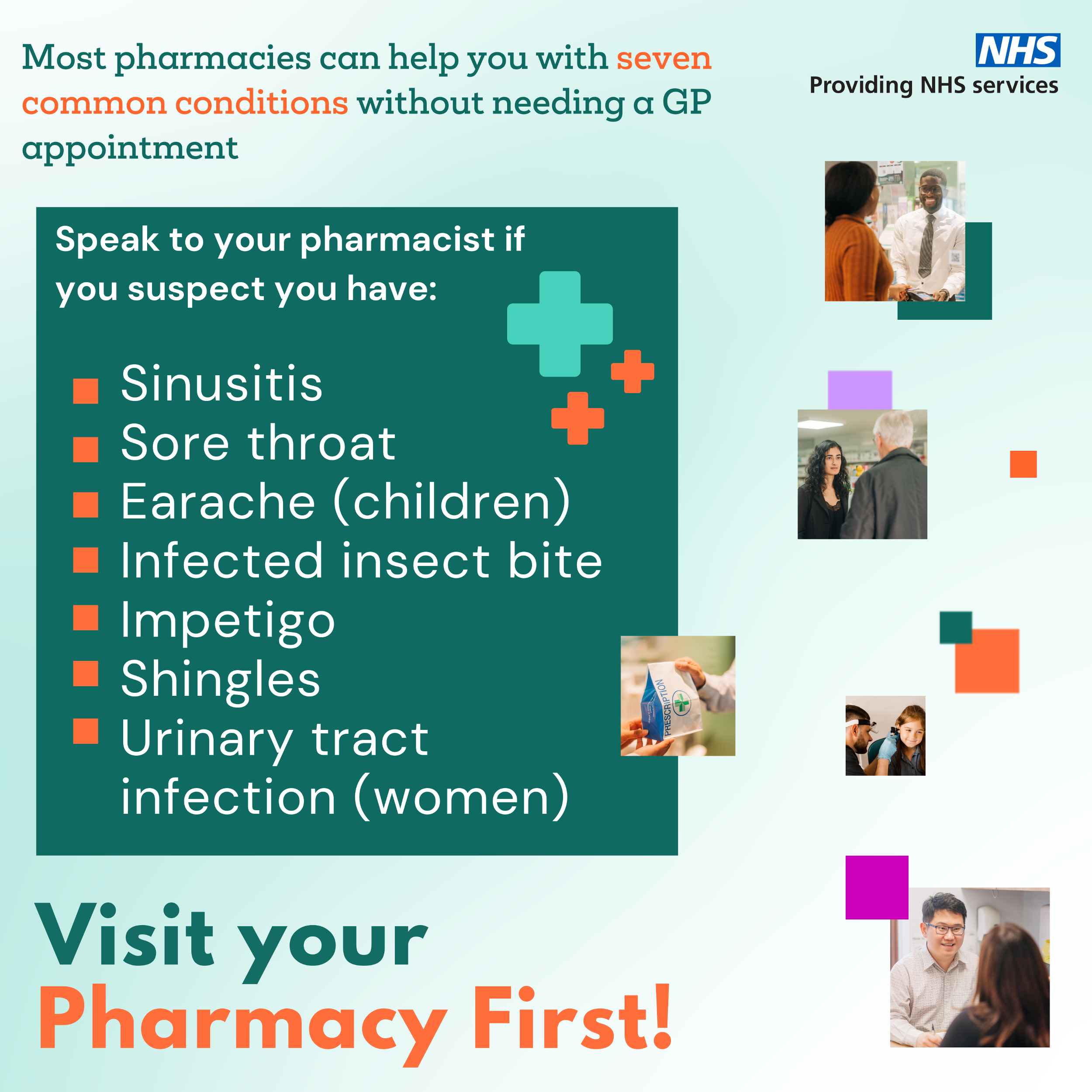
The Pharmacy First scheme gives patients quick and accessible care and will help ease pressure on GP services. The seven common conditions are:
- Sinusitis
- Sore throat
- Earache
- Infected insect bite
- Impetigo (a bacterial skin infection)
- Shingles
- Uncomplicated urinary tract infections in women.
You can get treatment for these conditions by walking into the pharmacy or contacting them virtually. GP receptionists, NHS 111, and providers of emergency care will also be able to direct patients to pharmacies, that offer the service, if contacted.
Video
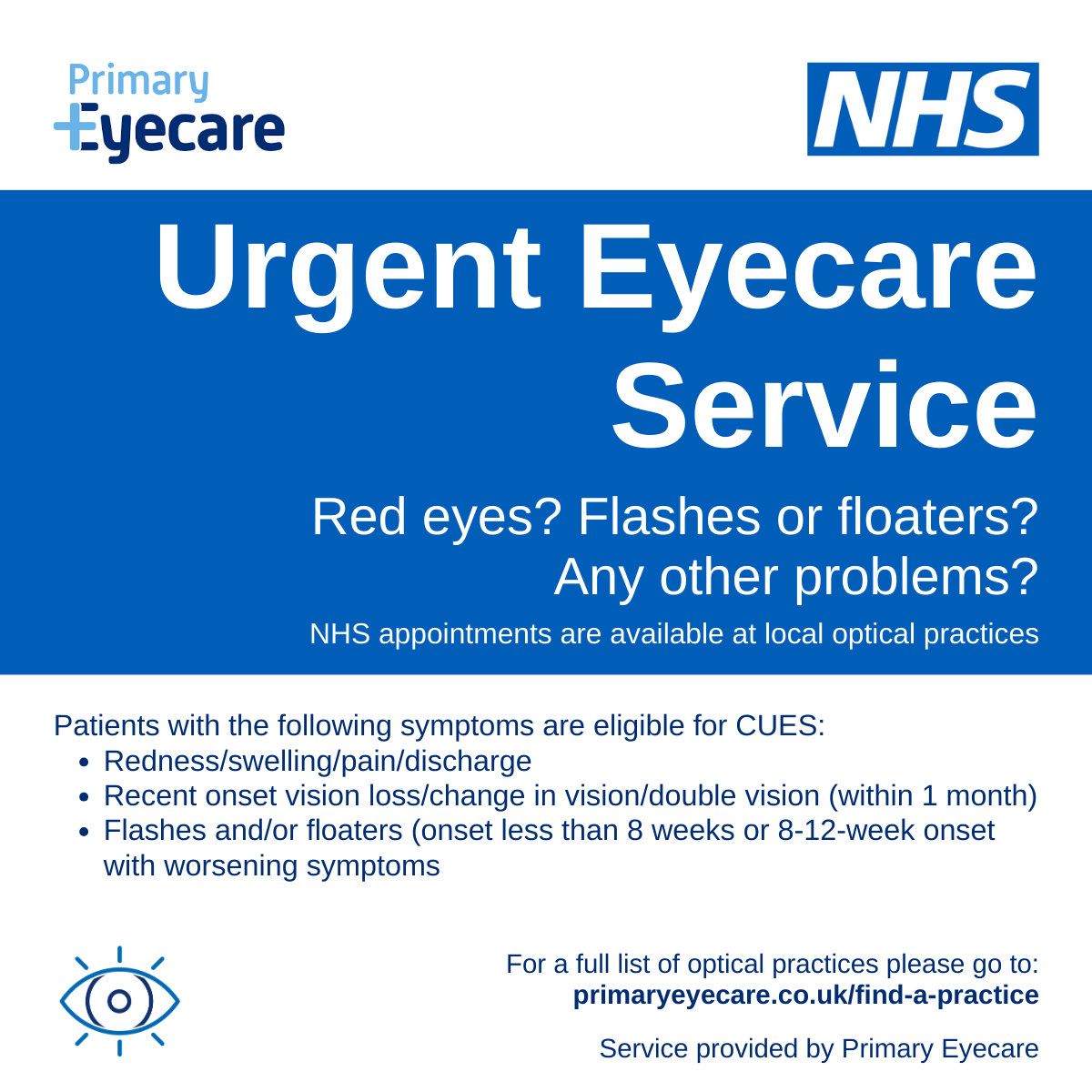
CUES provides urgent assessment, and treatment for sudden onset eye problems including:
- Red or painful eye or eyelids
- Recently occurring flashes and floaters
- Recent and sudden loss of vision
- Foreign body in the eye
You can self-refer or be referred by another health care provider such as your GP, pharmacist, optician, care navigator, NHS 111, hospital eye service, A&E or minor injury unit.
Find a participating practice at www.primaryeyecare.co.uk and book an appointment.
This service does not cover long standing or major eye conditions that are being regularly monitored by your optometrist or hospital eye service – please consult your usual optometrist or hospital eye service directly if you experience any of the above eye problems.
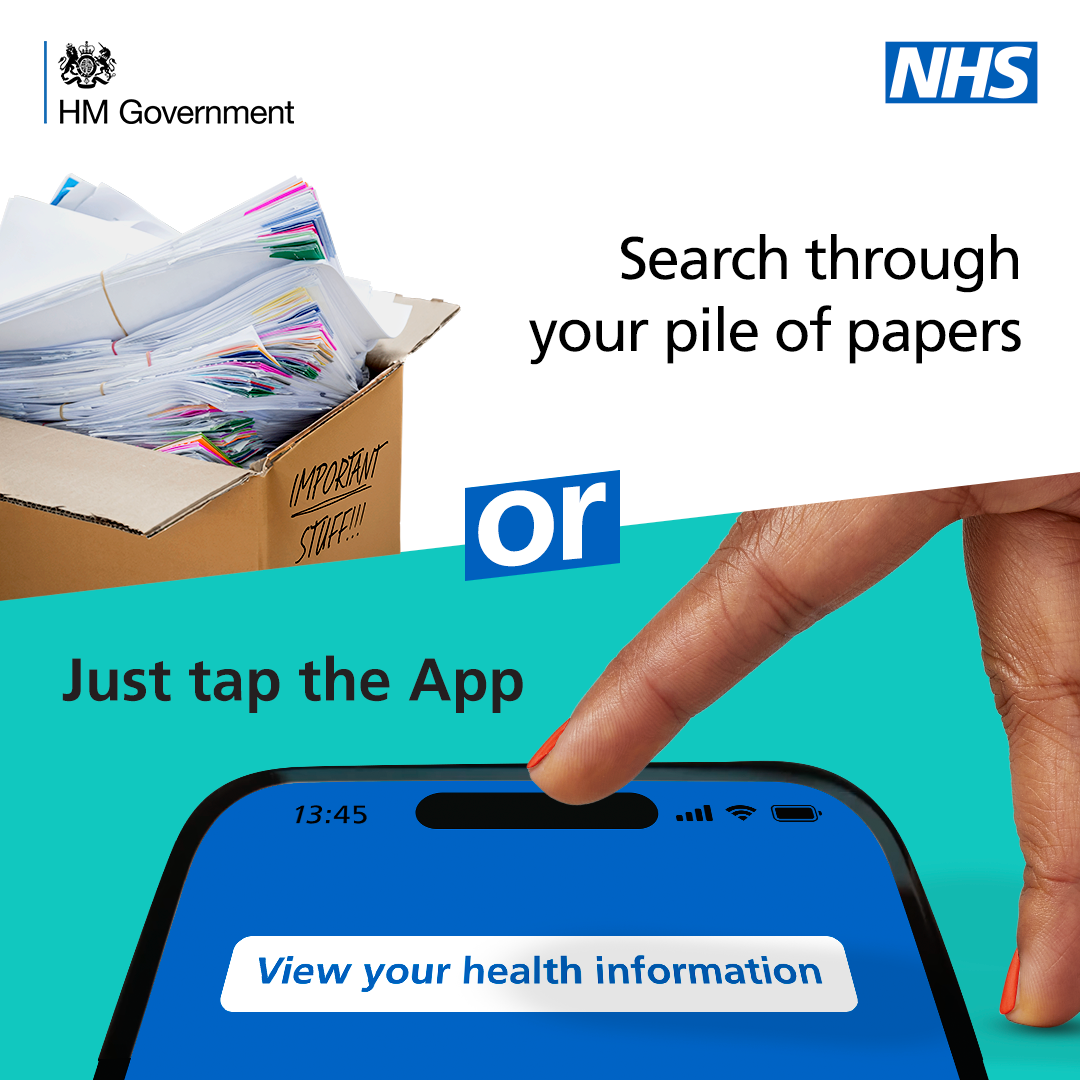
You must be aged 13 or over to use the NHS App. You also need to be registered with a GP surgery in England or the Isle of Man. Find out more about who can use the NHS App.
What you can do with the NHS app
You need to prove who you are to get full access to the NHS App. With full access, you can:
- order repeat prescriptions and nominate a pharmacy where you would like to collect them
- book and manage appointments
- view your GP health record to see information like your allergies and medicines (if your GP has given you access to your detailed medical record, you can also see information like test results)
- book and manage coronavirus (COVID-19) vaccinations
- register your organ donation decision
- choose how the NHS uses your data
- view your NHS number (find out what your NHS number is)
- use NHS 111 online to answer questions and get instant advice or medical help near you.
Before proving who you are, you can use the NHS App to:
- search trusted NHS information and advice on hundreds of conditions and treatments
- find NHS services near you.
NHS App help and support
Tell us what people are saying
We’d be grateful for your feedback on what people are saying. If people are asking for information on a particular health condition or subject, or have any comments about a health service they’ve recently experienced, please get in touch with our Time 2 Talk team.
You can contact them direct Monday to Friday, 9am to 5pm (excluding Bank Holidays):
- Telephone: 0300 0120 281
- Email: bcicb.
time2talk @nhs.net - Address: Time2Talk, NHS Black Country ICB, Civic Centre, St Peters Square, Wolverhampton, WV1 1SH
Follow us and share our content on social media
For the latest local NHS news and health advice, visit our NHS Black Country ICB website:
Or visit and share our messages on social media:



